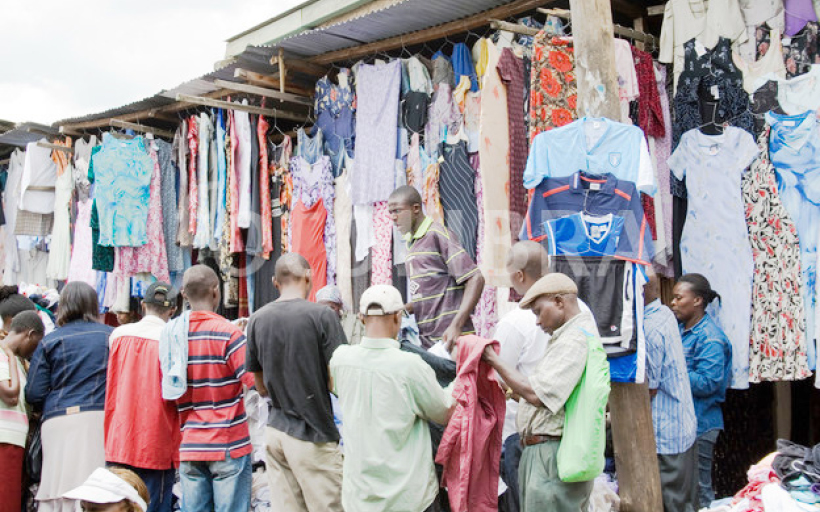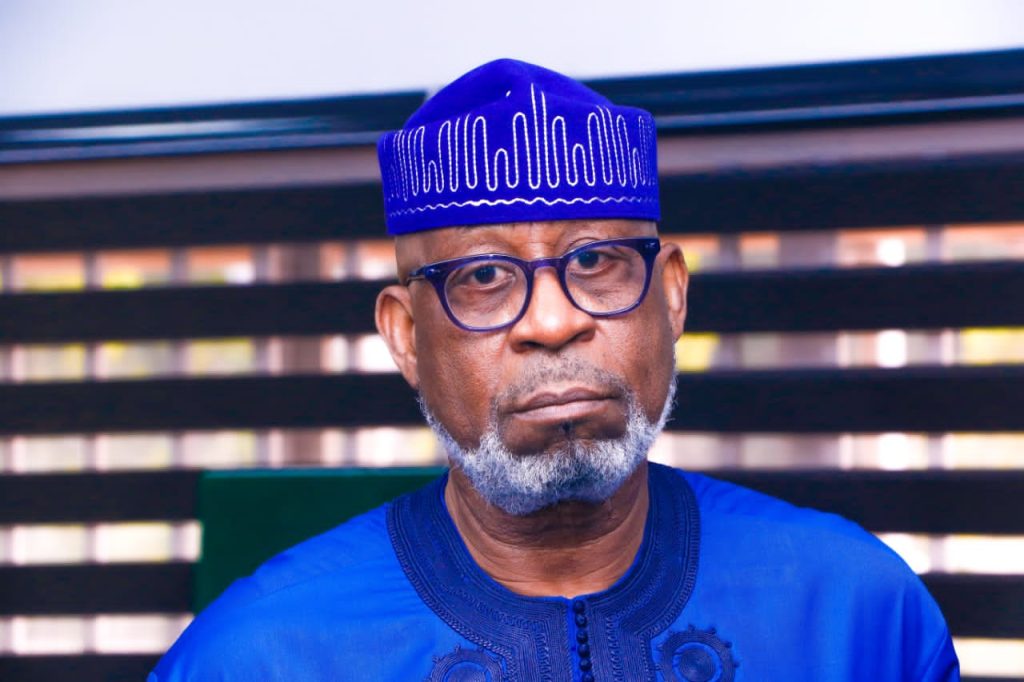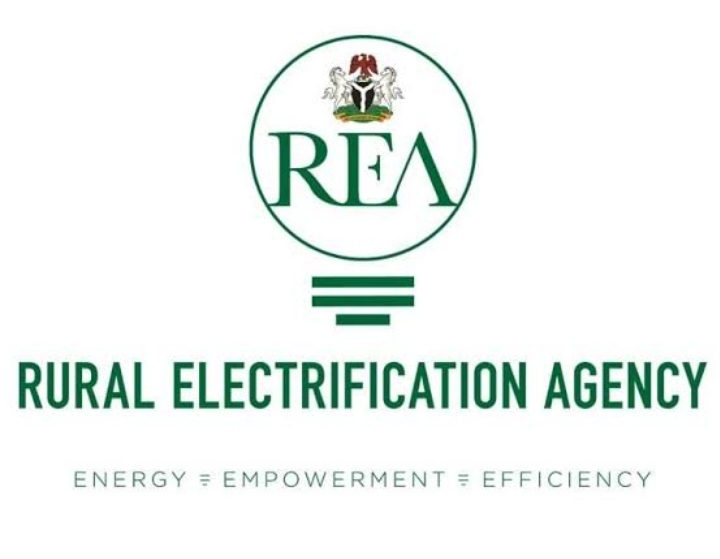Kemi Badenoch’s coronation as the leader of the Conservative Party, becoming the first black woman to lead a major political party in the UK, set alight WhatsApp groups and social media feeds from London to Lagos. One of the many messages of support came from across the parliamentary floor, from Florence Eshalomi, 44, Labour MP for Vauxhall and Camberwell Green, who tweeted: “From one British Nigerian MP to another British Nigerian MP, congratulations @KemiBadenoch on your election as leader of the Conservative Party. _Eku ori ire._ Your dad would be proud.” _Eku ori ire_ is Yoruba for “Congratulations on the good news”.
Despite their political differences, even Eshalomi was happy to admit that, for her and for many in the diaspora, Badenoch, very much a Marmite public figure, had done good — and yes, her parents would be proud.
Aged 44, Badenoch’s meteoric political rise is both historic and everything you would expect from a member of the Nigerian diaspora: she is ambitious, well educated and with an almost unstoppable drive to succeed.
For almost a decade, editing _The Powerlist_, the annual ranking of the most influential people of African and African Caribbean heritage in the UK, I chronicled inspirational tales of black excellence and success across a broad range of fields. And even when I moved on to running my own PR and communications agency, ESPR, I continued working with the team as their PR director. Over the years, I have seen a pattern emerge that, as a British Ghanaian, is somewhat annoying given the two countries’ friendly rivalry — the steady rise of the number of British Nigerians dominating the list. That’s both British Nigerians and Nigerians who split their time between their home country and the UK.
Given the sheer number of Nigerians on the planet, some may say that is only to be expected. The population of the west African country is around 220 million while the Nigerian diaspora numbers around 17 million. According to the Office for National Statistics, 271,390 people gave Nigerian as their ethnic group in the 2021 census. So is it the numbers, or is something more sophisticated and more strategic going on that is seeing men and women of Nigerian heritage rising to the top of all fields, not only in British life but across the world?
That list includes people such as respected cybersecurity boss Tom Ilube, 61, a former Powerlist No 1, chairman of the King’s Trust UK and the Rugby Football Union, former BBC Board member and chief information officer of one of the original internet banks, Egg; Tunde Olanrewaju, 45, managing partner at McKinsey & Company and the highest-ranking Nigerian on this year’s list; banker Kene Ejikeme, 42, the first person of African heritage to be promoted to partner in Europe in Goldman Sachs’ history; Funmi Adegoke, 42, who at FTSE 100 firm Halma is sector chief executive for safety; and Tevin Tobun, 48, CEO of logistics tech platform Routd and GV Group, dubbed the Amazon of commercial food delivery in the UK.
Others flying equally high are Eva Omaghomi, 46, director of community engagement for King Charles and Queen Camilla, the longest-serving black member of the royal household; Ije Nwokorie, 54, CEO of iconic shoe brand, Dr Martens; and journalist Chioma Nnadi, 44, head of editorial content at Vogue and successor to Edward Enninful.
In sport and entertainment you’ll find the likes of David Oyelowo, 48, John Boyega, 32, Cynthia Erivo, 37, Anthony Joshua, 35, Bukayo Saka, 23, and KSI, real name Olajide Olatunji, 31, the country’s most successful YouTuber with more than 46 million followers across various channels and the co-founder of the drink Prime. Then there is influential music manager Vannessa Amadi-Ogbonna, 44, who oversees the careers of some of the biggest Afrobeats stars in the world including Davido, 31, and Tiwa Savage, 44. The genre itself is dominated by Nigerian hit-makers including Burna Boy, 33, and Wizkid, 34. Meanwhile in food, upscale Nigerian restaurants Akoko — run by executive chef Ayo Adeyemi, 34, and founder and owner Aji Akokomi, 47 — and Adejoké Bakare’s Chishuru claimed Michelin star status this year, with Bakare, 52, becoming the first black woman in Britain to be awarded one.

So what is it that seemingly sets men and women with Nigerian heritage apart? Despite what it looks like to the untrained eye, Badenoch’s backstory is far from unique. Like many British Nigerians she was born into a middle-class comfort and financial stability.
Her mother, Feyi Adegoke, was a professor of physiology; her father, Femi Adegoke, a doctor. She was born in a private hospital in west London, her parents returning with her to Nigeria when she was just two weeks old. Like many others, she had a pretty affluent life in a wealthy suburb of Lagos, the economic capital of Nigeria, with her two younger siblings. But then political and economic uncertainty meant her family fell on hard times. Femi lost his lucrative GP contracts with oil companies and the family were sustained by Feyi’s income. In Badenoch’s maiden speech in parliament in 2017, she recalled “doing my homework by candlelight, because the state electricity board could not provide power, and fetching water in heavy, rusty buckets from a borehole a mile away, because the nationalised water company could not get water out of the taps”.
It was a similar middle-class upbringing for Nero Ughwujabo, 50, now senior strategy adviser to the King’s Trust and the first UK black special adviser in No 10, where he served under Theresa May. He grew up in Eku, Delta State, in the south of Nigeria, before coming to London at 15 to go secondary school, attending Sacred Heart Catholic School in Camberwell and Saint Francis Xavier, a Catholic sixth- form college in Clapham, and describes having a “good” childhood in West Africa.
“It was affluent. We had different homes, drivers, house help. We had everything,” he recalls.
Unlike Badenoch, however, he doesn’t remember doing his homework by candlelight or having to fetch water from a well. “We had electricity, water, a generator,” he says. “We had a good life.”
Ughwujabo recalls being surrounded by family and friends of his parents in Nigeria who were all excelling in their field. His mother was a businesswoman, his father was a church leader and teacher.
“It was normal to see black judges, doctors, lawyers, newsreaders, people in positions of authority and power,” he says. “So much so that when we came to Britain to further our education, we had every expectation that we would do equally well. Ambition, drive, a will to succeed, these are all characteristics Nigerian parents drum into you from a very young age. But the thing that they hammered home more than anything else was the importance of education, education, education.”
Michael Eboda, the CEO of Powerful Media, publisher of _The Powerlist_, himself a trained lawyer and journalist, agrees. This year he launched a “global list of pioneering Nigerians” because there were too many to fit into the list of British-based ones. “Nigerians have an almost pathological obsession with education,” he says.
Eboda, 63, was born in Britain but moved to Nigeria in 1976 to live with his aunt when he was 14 following the sudden death of his mother. He recalls how, in Nigerian schools, children weren’t listed alphabetically. Instead, walls were adorned with lists ranking pupils in order of academic achievement, from first at the top to last at the bottom.
“There was a huge sense of shame about being anywhere near the bottom. In Nigerian schools, you weren’t teased for having the wrong trainers or a bad haircut — you were teased for not getting good grades or being an academic failure.”
Eboda, who went on to King’s College school, Lagos, and the University of Ife law school (one of the best universities in the country, now Obafemi Awolowo University), says in contrast he didn’t feel that much was expected from him at the south London state school that he attended before his mother died. “There was no pressure to do well. I went to school to play football with my mates. But in Nigeria everything is different. They eat, sleep, and breathe education. You were expected to go to university at the very least.”
Ughwujabo, who went to Eku Baptist High School before moving to the UK, agrees. “In Nigeria my name was at the top of the list many times. It was a badge of honour. But one day I went to school and I was horrified to discover I’d dropped to second place. Even though my parents weren’t as strict as some others, I dreaded going home and facing my father. Let’s just say I took the very long way home to try to avoid seeing him that day. The sense of shame was unbearable. I studied day and night to reclaim my place at the top.”
Topping the class leader board was more than a matter of academic pride. In Nigeria, where the demand for resources outstrips supply, competition for places in the best universities is fierce, another reason why top academic marks are so highly prized.
Badenoch has also spoken about noticing a similarly laissez-faire attitude to education in the UK compared with Nigeria, following her arrival back in England aged 16. She had been sent to live with a close family friend, Dr Abiola Gyado, in southwest London, after her family fortunes continued to decline. (She famously got a job in McDonald’s, which Badenoch calls her “working class” era.)
At a further education college in London, this superbright student who had excelled at English and maths and was a national chess champion in Nigeria, found little was expected of her. She said her tutors “actively encouraged me not to apply for things that I wouldn’t get into”. In the end, after studying for her A-levels at Phoenix College, she went to Sussex University to study computer engineering. In that way she really was a child of Nigeria, where the holy grail is to have a child who is either a doctor, lawyer or engineer.
Eboda, who did a master’s in law in the UK and is a journalism postgrad, says, “Every Nigerian parent wanted their child to be one of those three professions. If you did really badly, you would become an accountant.”
It’s clear that education undoubtedly plays a huge role. Elaine C Walker is the founder and managing director of Everything’s Education, a British-based consultancy which supports parents from all over the world aiming to get their children into elite private or grammar schools in the UK. While most of her clients are African, a reflection of the importance of education across west Africa, she says more than 60 per cent of her clients are British Nigerians or based in Nigeria.
And what does Walker think the impact of the government’s introduction of 20 per cent VAT on private school fees will have on Nigerian parents? “It will harm them, but it won’t hinder them,” she says. “For these parents, there is no better investment than their children’s future.”
Data from the Washington-based Migration Policy Institute (MPI) shows that Nigerians in the United States are doing equally well. The founder of the digital scheduling platform Calendy, valued at $3 billion (£2.4 billion), is American Nigerian Tope Awontoa, 43. Wally Adeyemo, 43, is the highest-ranking American Nigerian in the Biden administration, serving as deputy secretary to the treasury under Janet Yellen. MPI’s research found Nigerians are the most educated migrant group with 61 per cent holding at least a bachelor’s degree, compared with 31 per cent of the total foreign-born population and 32 per cent of the US-born population.
While there is a consensus that education has a crucial role to play in success, it is equally true that Nigerians possess a huge amount of ambition, self-belief and confidence.
Mo Abudu, 60, is CEO of Ebony Life Group, one of Nigeria’s biggest media brands. She was born in the UK and went to Nigeria at the age of seven, returning to the UK when she was eleven. She started her career as a recruitment consultant in the UK before returning to Nigeria, where she spent 10 years with ExxonMobil as the head of HR. She surprised many by leaving a safe corporate role to pursue her dream of becoming an entrepreneur.
She set up and ran several companies before moving into media with her own talk show, based in Lagos, called Moments with Mo, the first show of its kind in the country. That was to become the foundation for EbonyLife TV, EbonyLife Films as well as a creative academy. She believes her fellow British Nigerians have a mindset of “self-assurance and innovation”.
“For British Nigerians, success is deeply rooted in resilience, hard work and an unyielding spirit,” says Abudu, who was recently dubbed “the queen of African media” by The Hollywood Reporter. “Our mindset is one of tenacity and ambition, a drive to overcome adversity and create impact. The qualities are embedded in our heritage and they drive us to push boundaries and redefine possibilities. Being strong, bold and daring isn’t just an aspiration; it’s a way of life.”
Abudu, who splits her time between Lagos and London and whose two children were educated in Nigeria, the UK and the US (her son went to Harrow and Ivy League Duke University in Durham, North Carolina), says Nigerians are fuelled by a will to excel and a strong competitive spirit. But, as she sees it, there’s more than that. “We see challenges as opportunities,” she says. “We learn early on that hard work, adaptability and determination are crucial for success.”
Ughwujabo echoes this sentiment. For him another key characteristic is pragmatism. British Nigerians, he says focus, on what they want and they play the long game. They know at some point they will face racism, either overt or covert, and they don’t see that as an impediment to success.
“If you try to stop Nigerians’ progress by telling them they don’t have the right degree or the right qualifications, they will go and get the right degree or the qualification,” says Ughwujabo. “If you then change the goalposts and tell a Nigerian they in fact need other certificates, they will go and get them.
“Most Nigerians have several degrees, a master’s and multiple certificates. We soak up the opportunity to progress. One way to fight the system and discrimination is to compile and keep compiling qualifications until they run out of excuses and have to give you the opportunity, because you are blatantly the most qualified.”
This was certainly the case for Richard Iferenta, 59, partner and head of financial services indirect tax practice at KPMG, who is one of the country’s leading tax experts. He, like others, felt people looked down their noses at his qualifications when he came to Britain, in the late Eighties.
“When I arrived in the UK, I was a qualified barrister. I had worked on a large number of court cases and legal matters and so I thought I would get a job commensurate with my education and experience. But this wasn’t the case.” Iferenta, 59, found that in Britain, his degree and qualifications weren’t worth the paper they were written on. No one would take them seriously.
But for him and many others, failure wasn’t an option. “When you leave Nigeria, you walk on that plane 10ft tall. But you certainly come back down to earth with a bump. However, there’s no way I could go back with my tail between my legs and tell everyone things didn’t work out, because I couldn’t get a job — things had to work out. There was nothing to fall back on and I also had to look after my family, so I had to persevere.”
Typically, a Nigerian has their eye on the prize; they remain focused. There will be hurdles and bumps on the road. But we are patient.”
Damilare Ogunleye, a Nigerian entrepreneur who moved to the UK in 2021 and who is CEO of tech startup FoodLama, says, “The bar for frustration for a Nigerian is very high. Sometimes I see my daughter getting frustrated because her iPad is taking more than 30 seconds to load. I tell her, only half joking, when I was growing up in Nigeria, do you know what I had to go through, what mountain I had to climb to even get connected, and you’re angry at slow internet. They have no idea. It takes a lot to get a Nigerian really frustrated.”
Despite this global success, however, for many Nigerians yet to make it to the West, Ughwujabo says there is a sense that they are a nation who can do better, but it’s the country’s politics and poor management that are holding it back, with a lack of opportunity still fuelling a drive to move overseas.
“You’ll hear a lot of people talk about japa [escape],” he says. “The idea that you have citizens in the country who are brilliant doctors, lawyers, businesspeople, but they are frustrated with not getting the right opportunities because of the way the country is run, frustrated at seeing potential wasted, and they feel that in order to excel they have to go abroad.”
Badenoch attributes part of her Conservatism to her annoyance and frustration with “snotty, middle-class north Londoners” at Sussex University who “drove me insane [with] how they talked about Africa… These stupid lefty white kids didn’t know what they were talking about.”
She went on to join the Conservative Party in 2005, aged 25, and fought for the safe Labour seat of Dulwich and West Norwood in 2010 (she came third). It was on that election campaign that she met her husband, Cambridge-educated banker Hamish Badenoch, whom she made her campaign manager. They married in 2012.
People who know her put her forthright nature down to her father who, according to her mother, Feyi, was outspoken and fearless. “She’s just a chip off the old block,” says Feyi proudly.
Like other British Nigerians, Badenoch came to Britain with academic rigour, a determination to succeed and the will to make the most of the opportunities that were available. She may have been born in Britain, but she was made in Nigeria.
In Nigeria this sense of being unstoppable can be summed up in the country’s unofficial motto, Naija no dey carry last, a pidgin English phrase which loosely translates as “Nigerians will always strive to finish first”. Judging by their unstoppable rise over recent decades, they are quite right.
Source: The Times (UK)

 5 hours ago
9
5 hours ago
9













